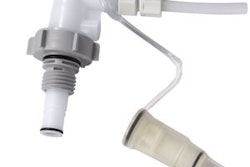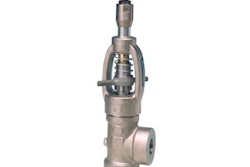BRUSSELS (AP) — Governments opposed to the European Union's new carbon emissions tax for airlines should not underestimate its determination to curb climate-changing gases, the EU's climate chief warned Friday.
Connie Hedegaard, the European commissioner for climate action, also challenged nations that don't like the EU program to propose their own ways of cutting carbon emissions, rather than just criticizing the plan which went into effect on Jan. 1.
"We must hear from the parties that don't like the EU scheme ... what exactly do they want, what do they like, rather than saying just what they do not like," she said.
Under the system, which went into effect at the start of the year, airlines flying to or from Europe must obtain certificates for carbon dioxide emissions. They will get free credits to cover most flights this year but must buy or trade for credits to cover the rest.
The United States, China, Russia, India and many other countries say the bloc cannot impose taxes on flights outside its own airspace. They are due to meet in Moscow next week to consider a joint response.
EU officials have cited a doubling of aviation carbon emissions in Europe between 1990 and 2006 and the inability of governments to forge a global deal on reducing emissions as reasons that prompted them to act.
Hedegaard said that rather than attempting to derail the only functioning system to address aviation's carbon emissions, the countries meeting in Moscow should come forward with concrete suggestions for an even better, global solution. She recommended they should work with U.N. aviation agency the International Civil Aviation Organization to achieve such a solution.
"If this law leads to what could not be agreed before, namely a global system, then it's a very good perspective," she said in a telephone interview from Danish capital Copenhagen.
"But if anybody thinks they can threaten Europe to abolish its own laws, then they are underestimating Europe."
China has said it will prohibit its airlines from paying the EU fees, and in Washington Congress has voted to exclude U.S. airlines from the emissions cap-and-trade program.
This has ratcheted up the dispute over the cost of combatting climate change, leading some analysts to warn it could spiral into a global trade war.
Tom Enders, chief executive of Airbus, the world's largest commercial airplane maker, said on Monday that he was worried that "what started out as a solution for the environment has become a source of potential trade conflict."
Hedegaard described as "wildly exaggerated" claims by the scheme's detractors that the fees would add between $50 to $60 to the cost of a trans-Atlantic airfare. She said that on the London-New York route the fee would in fact amount to just two dollars.
"It's actually less than the price of the coffee you would buy at the airport," she said.






















